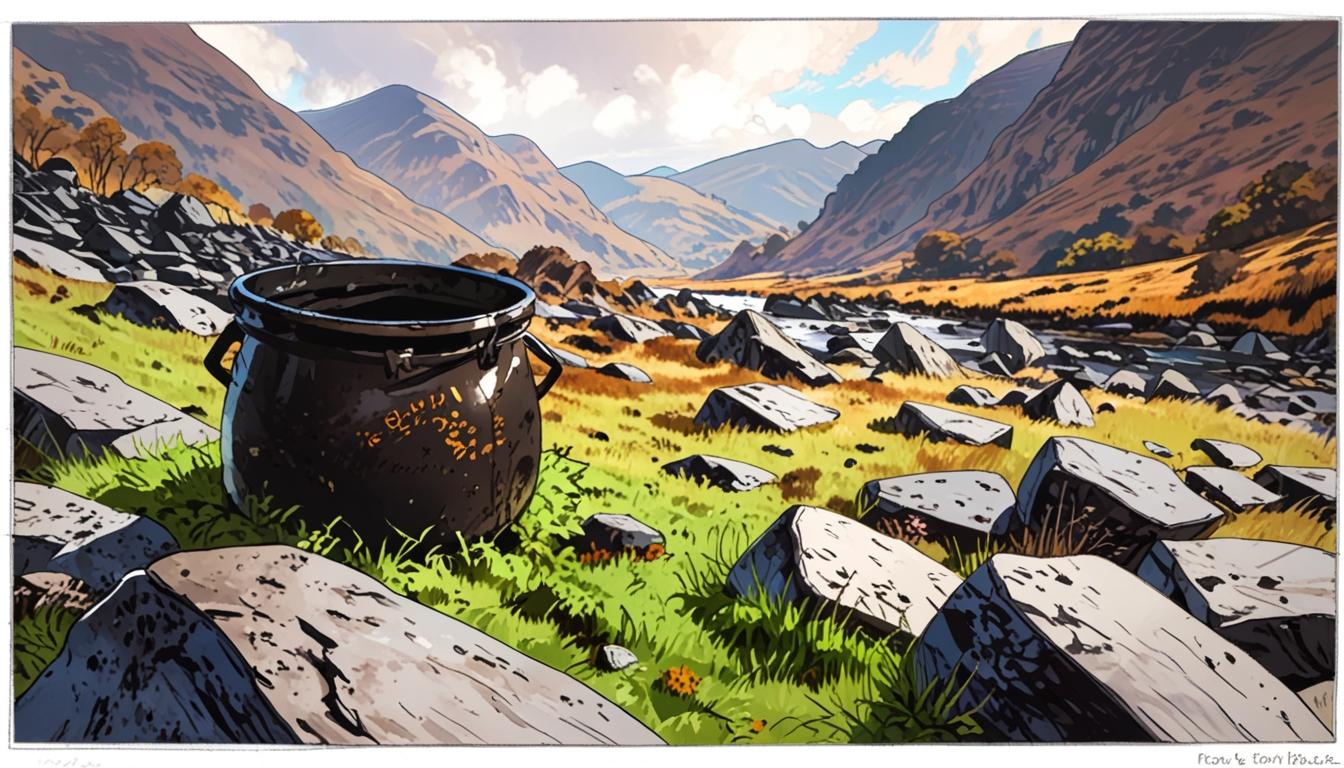The serene landscape of the Borrowdale Valley in the Lake District is facing a troubling crisis, as highlighted by the shocking litter left at Black Moss Pot over the recent bank holiday weekend. Nigel Dixon, chairman of the Borrowdale Institute, has publicly condemned the irresponsible actions of visitors who left behind a considerable mess at this natural pool. Via the “I Love Borrowdale” Facebook page, Dixon expressed his frustration, stating the necessity of raising awareness about littering in local beauty spots. His remarks underline an urgent call for a deeper respect for nature and adherence to the countryside code.
In his post, Dixon explicitly called for a culture of accountability amongst visitors, asserting, “We have to show people what they are doing wrong if we are going to educate and hopefully stop it happening in the future.” The emotional weight of his message resonated with many local residents, drawing impassioned responses. Holly Dearden Milburn, summing up the feelings of many, remarked, “It’s disgusting… They should be fined.” Her experiences of confronting offenders were met with hostility, illustrating the challenges locals face in combating this growing problem, especially in remote areas where policing is scant.
The issue of litter is not confined to Borrowdale; it is a widespread problem across the Lake District and beyond. A recent study found that 72% of visitors admitted to leaving litter behind, raising significant concerns for the environment and local wildlife. The effects of such negligence are dire; for instance, 95% of seabirds in coastal areas have been found with plastic remnants in their stomachs. The international statistic on litter underscores a broader trend in recreational areas, further necessitating community engagement and enhanced educational initiatives.
The gravity of littering was starkly illustrated in a report from London’s Royal Parks, where incidents of animals entangled in plastic waste became alarmingly frequent. Between April 2020 and April 2021 alone, an estimated weight of litter equivalent to 157 double-decker buses was collected, costing the city £1.3 million annually for cleanup efforts. This staggering figure reflects the extensive resources diverted from conservation activities due to litter management.
Moreover, the impacts of litter extend beyond visual pollution; they infiltrate the natural ecosystem, affecting biodiversity and water quality. According to a government study, littering poses significant hazards not only to wildlife, which may ingest or become ensnared in waste, but also contaminates water bodies and presents health risks to humans through exposure to hazardous substances. The urgency of addressing this issue was echoed by advocates including Sir David Attenborough, who underscored the importance of responsible visitor behaviour to preserve these cherished spaces.
The rise of illegal camping and associated littering has been exacerbated in recent years, largely attributed to increased staycations during the pandemic. Reports indicate that as much as 86% of national parks have witnessed a surge in ‘fly camping’ incidents, a troubling trend leading to abandoned equipment and waste. With the National Trust revealing that 20% of their time is now spent on litter collection, there is a compelling need for a multifaceted approach to mitigate the impacts of visitor behaviour on these natural environments.
The collective frustration voiced by local residents and the alarming statistics regarding litter reflect a pressing challenge that requires immediate attention. Educating visitors about their environmental responsibilities is imperative, as is implementing stricter enforcement measures against littering. Equally important is fostering a culture of care for our natural heritage, reminding us that every visitor plays a crucial role in preserving the beauty of our landscapes for generations to come.
Reference Map
- Paragraphs 1-2
- Paragraphs 3-4
- Paragraph 5
- Paragraph 5
- Paragraph 6
- Paragraph 6
- Paragraph 7
Source: Noah Wire Services
